
ROWMAN & LITTLEFIELD PUBLISHERS, INC.
Published in the United States of America by Rowman & Littlefield Publishers, Inc.
A Member of the Rowman & Littlefield Publishing Group 4720 Boston Way, Lanham, Maryland 20706
www.rowmanlittlefield.com
P.O. Box 317, Oxford, OX2 9RU, United Kingdom
Copyright 2002 by Rowman & Littlefield Publishers, Inc.
All rights reserved. No part of this publication may be reproduced, stored in a retrieval system, or transmitted in any form or by any means, electronic, mechanical, photocopying, recording, or otherwise, without the prior permission of the publisher.
British Library Cataloguing in Publication Information Available
Library of Congress Cataloging-in-Publication Data
Generational consciousness, narrative, and politics / edited by June Edmunds and Bryan S. Turner.
p. cm.
Includes bibliographical references and index.
9780742581456
1. Age groups. 2. Generations. I. Edmunds,June, 1945- II.Turner, Bryan S.
HM721 .G464 2002
305.2-dc21 2002068141
Typeset by The Bardwell Press, Oxford, England
Printed in the United States of America
 The paper used in this publication meets the minimum requirements of American National Standard for Information SciencesPermanence of Paper for Printed Library Materials,ANSI/NISO Z39.48-1992.
The paper used in this publication meets the minimum requirements of American National Standard for Information SciencesPermanence of Paper for Printed Library Materials,ANSI/NISO Z39.48-1992.
Table of Contents
Introduction
Generational Consciousness, Narrative, and Politics
June Edmunds and Bryan S. Turner
Introduction
Despite the importance of the notion of generations in common sense or lay understanding of cultural change, the study of generations has not played a large part in the development of sociological theory. The sociological study of social stratification, for example, was largely dominated by attempts to establish the relationships between social class, status systems, gender, and race. By comparison with social class, generational inequalities and differences were regarded as relatively unimportant; though recently some authors have been creating a sociology of age that seeks to integrate traditional sociological variables in a seamless way with age (Ginn and Arber, 1995).
Conventional social science has either conceptualized generations as an aspect of social stratification, as a component of any general account of the aging of populations or as a feature of theories of social change. In the sociology of aging, generations were interpreted as horizontal slices within the aging structure. The aging of society was essentially seen to have two dimensions, namely the aging of individuals in successive cohorts and the changing age structure of society The sociology of aging studied the interaction between these two processes, that is individual biography and the demographic history of society (Riley et al., 1988). In these studies, the analysis of generations became the study of cohort flows, where a cohort was simply defined as the cohort of people, born in the same time period, who are aging (Ryder, 1964, 1965). As a result of these emphases the sociological study of generations has tended to be subsumed within life course studies.
Finally, generations appeared as a specific feature of social histories or accounts of social change. Within this category, there were a number of brilliant studies of the impact of specific generations on social change. For example, in connection with the generational effects of the First World War on the subsequent rise of fascism (Theweleit, 1987).Various historical studies of specific generations such as the generation of 1929 (Schelsky, 1963) or the 1960s generation in Germany (Bude, 1995) served to illustrate the value of the concept. Mayer (1988) has explored the impact of the Second World War on the life chances of German survivors born between 1900 and 1930, examining the wars effect on their educational and occupational attainment and family structures.
These studies have been of a very high quality, however, the concept of generation has not been developed as a powerful tool of sociological analysis. Exceptions to this tendency include S. N. Eisenstadts (1956) study From Generation to Generation and, more recently, Randall Collinss (1998) study of intellectual generations. However, in the context of a shift in sociology away from traditional interests in favor of post-materialist issues, a new focus on generation seems particularly pertinent. The latest concerns of sociology have provided greater opportunities for exploring generation as a further collective identity deserving of attention as a way of understanding contemporary society With the erosion of a strong class theory there is an opportunity to reconsider generations, especially in relation to politics and cultural change (Corsten, 1999: 249-50).
There are several important social changes that have made the notion of generation more prominent in recent sociological writing. First, the size and strategic location of the postwar generation has proved to be an important and highly visible aspect of social change in the twentieth century. In cultural and political terms, the social consequences of the baby boomers or Sixties Generation could not be ignored. The retrospective debate with the twentieth century, particularly by critics of the alleged excesses of popular culture, is in fact an attempt to evaluate the cultural and social impact of the postwar generation who came to maturity in the 1970s (Bloom, 1987). There is general agreement that this generation has played an especially important part in transforming the social, cultural, and political climate of the contemporary world (Wattenberg, 1986; Gibson, 1993; Mol, 1985; Turner, 1991).
Second, the postwar generation was instrumental to the rise of modern consumerism, where generational audiences appear to be as or more important than social class or ethnic divisions. With the collapse of mass society as a consumer category, marketing and advertising are specifically structured around niche markets, of which generation is the most significant. Trends in fashion are heavily influenced by generational lifestyle. These changes in consumption are associated, in some sociological arguments, with the decline of social class as a marker of social location. The youth movement has been an important cause of such cultural changes. The speed of change in the market of youth fashion is driven by generational turnover rather than class membership (Bourdieu, 1993: 94-102).
Third, the aging of the population is now regarded as a central aspect of the social structure. Demographic changes have precipitated an important political debate about economic growth and political change and social policy. Governments have been forced to confront the policy implications of large aging populations and questions of social responsibility for such cohorts have been thrown open to both lay people and professionals. The global implications of aging are central to strategic thinking about economic growth and military power, and these changes are themselves connected with the consequences of the reproductive pattern of the postwar generation (Peterson, 1999). Sociological debates have centered on the idea of the continuing purchase of the intergenerational contract, which is based on the principle of reciprocity, with some authors suggesting that this contract has been replaced with conflict between generations (see Phillipson, 1998).
The notion of a We Generation is a consequence of these political problems that are concerned with the future funding of the welfare state. The popular notion that the postwar generation was selfish raises more general questions about fairness and transfers of wealth between generations. As a consequence, generations are a necessary feature of any discussion of justice and responsibility, and have been enshrined in the Rawlsian concept of fairness (Rawls, 1971:107). A responsible generation is one that husbands its resources such that the chances of subsequent generations are not significantly diminished by the selfish actions of contemporaries. Intergenerational exchanges of income and culture create tensions within the family between conflicting loyalties over different cohorts of children (Coleman, 1990). There have been growing concerns about inter-generational conflict resulting from the possibility of the current generation of older people making a greater use of resources than later generations (Vincent, 1999: 103).
Next page
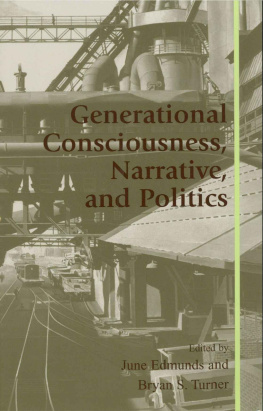

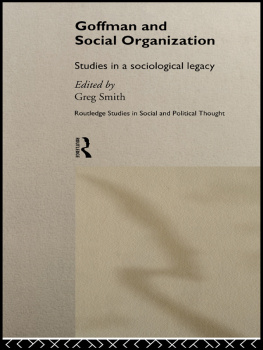
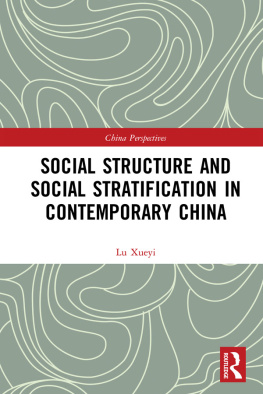

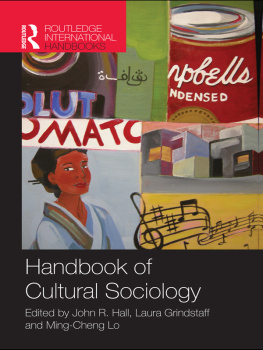
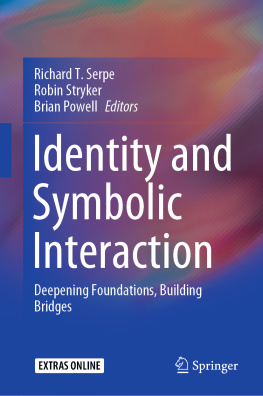
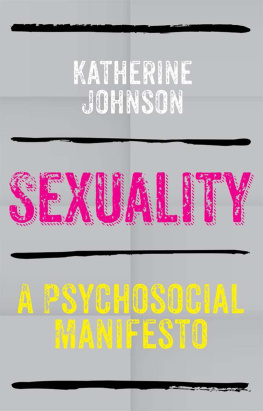

 The paper used in this publication meets the minimum requirements of American National Standard for Information SciencesPermanence of Paper for Printed Library Materials,ANSI/NISO Z39.48-1992.
The paper used in this publication meets the minimum requirements of American National Standard for Information SciencesPermanence of Paper for Printed Library Materials,ANSI/NISO Z39.48-1992.